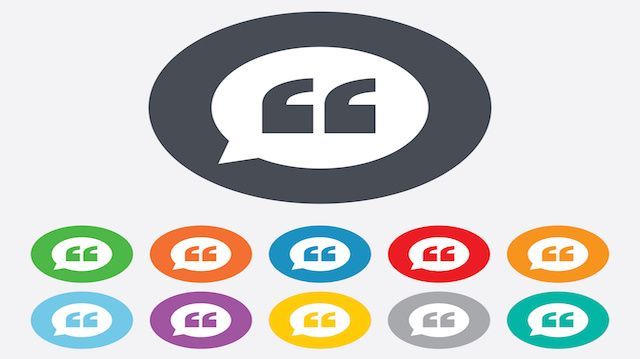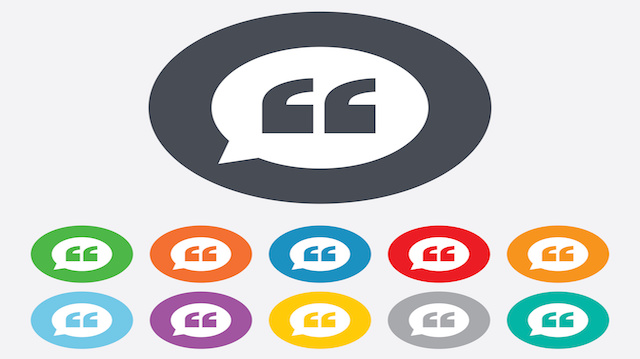
Most of us can think of at least one, maybe two or three, people in our lives who we look to for wisdom or clever sayings about life. These people tend to have a unique viewpoint and an almost poetic way of saying things that really grabs you and demands your attention.
For some of us, that wise person with a deep well of sage advice may be a grandparent. It could be an aunt or uncle, or even our own parents. Sometimes it’s the little old man who sits outside the post office or local farm and feed store.
The wisdom may come from many different sources, but you can usually tell when you hear it, because it tends to resonate with part of you. Somehow, you already knew it — you had just never been able to put it into words.
These sayings quite often encapsulate an individual’s worldview, or the way they look at the world and interpret information. This means that wisdom will sound different depending on where it comes from. It also means that a person’s experiences can affect what they view as wisdom. It follows that either true wisdom is subjective, or that some people don’t truly hit the mark.
I do not believe that wisdom and truth are relative. I think that if two people say opposing things, even if both of them sound convincing, they cannot both be right. We must be careful how we determine wisdom and truth.
Let’s look at some examples of wisdom from throughout the ages.
“I will not let anyone walk through my mind with their dirty feet.” —Mahatma Gandhi
Gandhi seemed to be stating that your mind can be defiled in some ways by other people. This quote encourages others to guard themselves against this.
We all should take this to heart. Protect yourself! Be open to listening to other people’s viewpoints, but there is a line and we need to be careful. Don’t let other people’s dirt mess up your mind.
“Whenever you find yourself on the side of the majority, it is time to pause and reflect.” —Mark Twain
While this principle can be taken too far, it is still a good reminder to not get carried away by popular opinion. It does not say or mean that if you realize you’re in the majority, then you must be wrong. It’s implying that quite often the majority is wrong, or at least off balance.
The more people are part of a movement, the easier it is to get carried away with the tide of emotion generated by the mob, and it becomes dangerously easy to forget about using logic and reason. If everybody believes it, it must be true, right? Not necessarily.
This is a call to be aware and keep your eyes open.
Which leads to the next piece of wisdom…
“If things go wrong, don’t go with them.” —Roger Babson
If you’re paying attention and have your eyes open, you will be able to see the direction other people are going. If it doesn’t look good, then it may be time to start walking in the other direction and making your own path.
It is also important to realize that we should be content with the way we are and not wish that we were someone else. However, even this can be taken too far. This next one sums it up about perfectly:
“Remember to always be yourself. Unless you suck.” —Joss Whedon
It may not be the most gracious way of saying it, but it is true! Now, I’m not telling you to get depressed about who you are. But if there’s something that needs to change, change it!
If you aren’t healthy, you shouldn’t sit there and say and say, “I’m fine the way I am.” You should fix the problem!
If you’re a disagreeable, angry person who nobody wants to be around, saying that you’re okay just the way you are is not going to help your situation. If you’re a drug addict who steals and lies to get a fix and no one trusts you, that is not a good way to live your life!
In every one of these situations, you will stay exactly the way you are until you get depressed because you are lonely or unhealthy. Now, some people will tell you that it’s okay to live life that way because it’s the real you and nobody should tell you that you aren’t perfect. That doesn’t make sense, and it doesn’t help you! If your life is not the way you think it should be, start making changes.
Be yourself, but if “yourself” sucks, change yourself. Don’t pretend to be someone you aren’t, don’t try to imitate someone else. Be someone new — be someone better!
“Flatter yourself critically.” —Willis Goth Regier
Be positive and encouraging to yourself, but don’t lie to yourself. Be critical and push yourself to be better.
“How can I be better,” you may ask?
You can start with some of these principles:
 “There are seven things that will destroy us: Wealth without work; Pleasure without conscience; Knowledge without character; Religion without sacrifice; Politics without principle; Science without humanity; Business without ethics.” —Mahatma Gandhi
“There are seven things that will destroy us: Wealth without work; Pleasure without conscience; Knowledge without character; Religion without sacrifice; Politics without principle; Science without humanity; Business without ethics.” —Mahatma Gandhi
These are all things that can serve as guidelines — this list is not the end-all. There is more to it than this, and these principles are more complicated than presented. However, this quote can still help us to realize that there is such a thing as morality and character. It also gives examples of how these things are a necessary part of being able to live and work with people.
As I said earlier, you need to be discerning when you hear a clever witticism. Some people will give you advice fueled by a life of hurt, and others may be sarcastic, and their words are not intended to be taken at face value.
Here are a few examples:
“The first half of our lives is ruined by our parents and the second half by our children.” —Clarence Darrow
“The reason grandparents and grandchildren get along so well is that they have a common enemy.” —Sam Levenson
“A wedding is just like a funeral except that you get to smell your own flowers.” —Grace Hansen
All three of these quotes are funny in a sort of twisted way, as long as you aren’t taking them seriously.
Be careful whose advice you listen to. Always be looking at advice critically and think about how to apply it. There is a lot of false wisdom flying around today— if the “wisdom” can’t be applied, then it isn’t worth very much and it’s definitely not worth repeating.
It’s better to be a part of the solution than the problem. So before you retweet, repost, regram or reblog a cool-sounding quote, take a second to think. Think about the effect it could have. Think about whether or not it is actually true! Consider the source. Is it trustworthy? Does the statement make sense?
Just remember:
“You can’t believe everything you read on the Internet!” —Abraham Lincoln
—Kyle Kramer
Kyle is an outdoor enthusiast with a passion for nature and sustainability. When he is not writing, you will find him in his workshop crafting with local wood, hiking in the Arizona mountains, fly fishing, horseback riding or putting together a healthy meal in the kitchen.
Sources:
http://www.lifehack.org/articles/lifestyle/30-the-best-quotes-ever.html
http://www.californiaindianeducation.org/inspire/world

